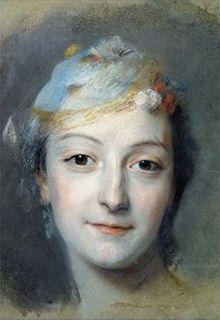

French singer born in Bordeaux, where her father was an organist. At the age of twenty, she was talent-spotted by an agent from the Paris Opera along with her brother, who was also a singer. She made her debut at the Academie royale de musique (as the Opera was officially known) on 29 October 1734, taking the role of Venus in the Prologue to Louis Lacoste's Philomels, a tragedie en musique first performed in 1705 and enjoying its third revival.
Soon after her debut, Marie Fel began lessons with the distinguished Italian soprano Christina Somis (1704-1783), who had arrived in Paris in 1734. From Somis she learned an Italian style of singing that equipped her with a technical facility hitherto unrivalled among French singers. Her roles for the next few years were nevertheless exclusively secondary ones: at this stage, contemporary reports emphasize her singing ability rather than her acting. Indeed, it was not until 1745 that Marie was given a major dramatic part, when she appeared as the magnificently zany La Folie in Rameau's Platee. For Marie Fel the role of La Folie proved a turning point, since it evidently convinced the management that she was capable of taking major dramatic parts. From then until her retirement from the Opera in 1758, Marie created almost all the principal female roles in new works; she also took the leading parts in revivals of existing operas, as in Rameau's Castor et Pollux (1737) at its 1754 revival.
Alongside her operatic career, Marie Fel also excelled as a concert soloist. Less than a week after her first appearance at the Opera, she made her debut at the Concert Spirituel, the institution that presented sacred and instrumental music on religious festivals when opera was forbidden.